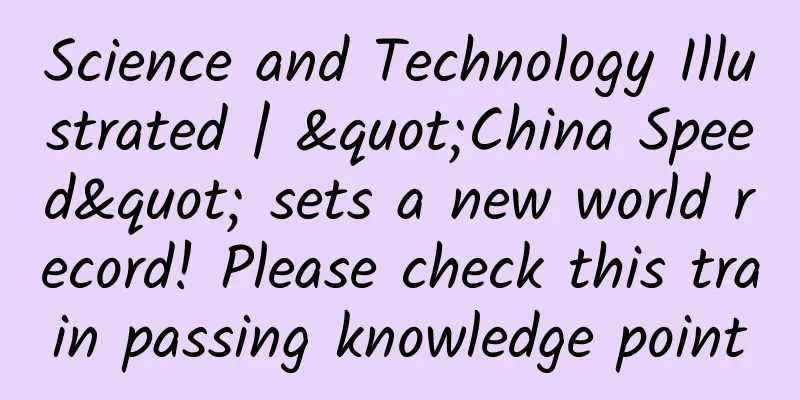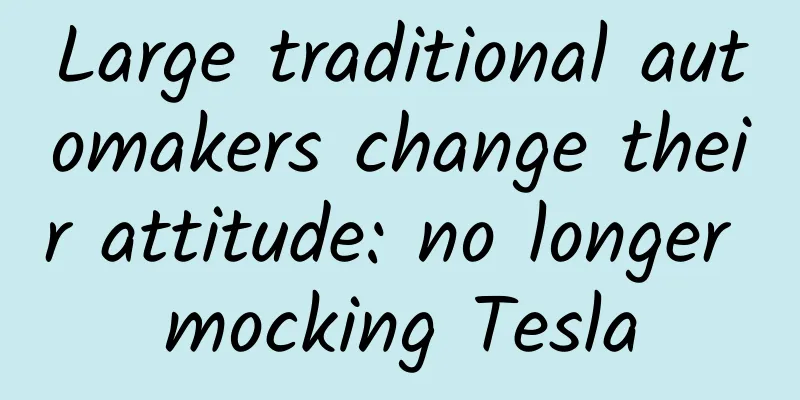Analysis of the four major platforms for hybrid app development

|
Hybrid App has become a core topic in the mobile industry in the past two years. But how can a Web developer stand on the top of the mobile Internet wave? Should they choose to learn native development and study languages such as Java, Object-C, and C#, or should they continue to use web development and tolerate the limitations of HTML5 functions? When developers are in a dilemma, Hybrid App was born as a compromise solution. So what exactly is a Hybrid App? Hybrid App Concept Hybrid App: Hybrid App is a mobile application that is coded in both browser-supported language and computer language. They are available through application distribution platforms such as the Apple App Store, Google Play etc. Usually, they are downloaded from the platform to a target device, such as iPhone, Android phone or Windows Phone. The subscribers need to install to run them. Generally speaking, Hybrid App is developed by using both web language and programming language, and is packaged and distributed through different app stores. The features of the app are closer to native apps and different from web apps. However, web language is also used during the development process, so the development cost and difficulty are greatly reduced. In other words, Hybrid App has many advantages of both Native App and Web App. A Brief Analysis of Hybrid App Hybrid App mainly uses JS+Native to call each other, and realizes the mechanism of "develop once, run in multiple places" from the development level, making it truly suitable for cross-platform development. At present, many Hybrid Apps have been successfully developed and applied, such as Baidu, NetEase, Jiepang and other well-known mobile applications, all of which adopt the Hybrid App development model. Many developers and successful cases have proven that Hybrid App has the advantages of good user experience of Native App and low cost of cross-platform development of Web App using HTML5. Now more developers are facing the choice of mobile platforms, so here we analyze the current mainstream platforms according to the usage of each platform in development. Analysis of mainstream mobile platforms Hybrid App development, the current mainstream platforms include PhoneGap, AppCan, appMobi, Titanium, etc. They are based on the webkit open source kernel, developed using the HTML5 standard, are easy to adapt to different models, support developer custom plug-ins, and can be well applied to business, education, entertainment and other industries, becoming the best development platform for mobile developers. PhoneGap (Cordova)
Product features: PhoneGap is a foreign open source mobile development platform. The core code has been contributed to Apache cordova, and the latest version is 2.6.0. It is based on HTML, CSS and JavaScript, and can use some open source frameworks such as jQuery Mobile, Dojo Mobile, Sencha Touch, etc. to improve the user experience. It also provides a relatively rich native plug-in call. characteristic: 1. You can use DreamWeaver 5.5 to encode, and now use the xdk provided by appMobi for simulator development. 2. The code is open source and developers can use it with confidence. 3. Compatibility: develop once and run in multiple locations. 4. Use JS+HTML5, low cost. advantage: 1. The Native interface is relatively rich, and the encapsulated API can directly access the hardware, such as acceleration, camera, compass, GPS, file access, etc. 2. The interface documentation is very detailed. 3. Supports multiple platforms, including iOS, Android, Blackberry, Symbian, bada, Windows Phone 7, Windows Phone 8, etc. shortcoming: 1. It is necessary to configure the corresponding platform environment, compile, package, test, publish, etc. Since most of the users of Hybrid development are web developers who have little understanding of native development, this undoubtedly adds a heavy burden to each developer. They need to understand the development of each platform and configure the hardware, etc., which increases the development cost. 2. The startup effect is slow, the page switching response is slow, and the data request is slow. 3. Although the document is relatively detailed, it is mostly in English, which is a big challenge for most domestic users with poor English proficiency. 4. Because it is a foreign framework, the technical support is not in place, and problems cannot be resolved, which becomes a difficult point in technical research. AppCan
Product features: AppCan is the most widely used mobile platform in local mobile development. According to online public opinion, AppCan is the Chinese version of PhoneGap. However, from the actual use of AppCan and the feedback from friends who have turned to mobile development, they are two completely different mobile platforms. AppCan not only encapsulates the local calling function similar to PhoneGap, but also encapsulates the uexWindow multi-window mechanism to achieve the iframe effect on the mobile terminal. Although it is not an open source project, there has always been a free version for developers, and there is also an enterprise version package for corporate users. The current latest version is 2.2.X. characteristic: 1. Provide integrated development environment IDE for simulator development. 2. Compatibility: develop once and run in multiple locations. 3. Use JS+HTML5, low cost. 4. Online packaging. 5. Code encryption protection mechanism. advantage: 1. Support online upload of certificate packaging, which is good news for those who are not familiar with Apple and Android environment development. 2. Support more native calls, such as UI control encapsulation, communication class (socket), map, Alipay and other native control support. 3. Have a unified data statistics platform to facilitate the operation and management of developed applications. 4. Complete technical support, official forums and QQ groups are well-established, enabling developers to communicate better. shortcoming: 1. Although there are development documents in Chinese, the description is relatively simple. I hope they can enrich their API documents. 2. The free version does not support custom plug-ins (it is said that the enterprise version can support custom plug-ins). 3. Currently, it only supports iOS and Android platforms. I wonder when Windows Phone 8 will be released? 4. Many features require the enterprise version, but it is charged. Titanium
Product features: Titanium mobile platform is a different kind of mobile development platform. It links JavaScript and native libraries together, compiles them into bytecode, and builds a software package for iOS and Android platforms respectively. Applications are developed using HTML, JavaScript and CSS, and support PHP, Ruby and Python. Applications can access local features using the Appcelerator API. It also provides the Appcelerator Studio development environment, which is compiled into native code, so the user experience is excellent. characteristic: 1. Generate corresponding native packages for different platforms. 2. For Appcelerator Studio development. advantage: 1. Generate native controls based on JS parsing, basically achieving a purely native user experience. 2. Support custom plug-ins. shortcoming: 1. The API documentation is in English and is relatively simple, which poses certain challenges for domestic users. 2. Like PhoneGap, it is a foreign framework and technical support is difficult. 3. Support Android, iOS and BlackBerry platforms. 4. The environment needs to be built by users themselves, which is relatively complicated. appMobi
Product features: appMobi has launched a new development tool, XDK, which allows developers to use HTML5 to build applications for the web and mobile platforms, and can perform screen simulation debugging, actual device debugging, and remote control debugging. characteristic: 1. Use XDK for development. 2. Html5+CSS+JS. 3. Develop once, run everywhere. advantage: 1. The local interface is relatively rich, and a game acceleration engine has been launched, mainly including physics engine, offline and dynamic cache, media player, verification and encryption, augmented reality, QR code and QR scanning, and better display support. shortcoming: 1. Foreign framework, poor technical support. At present, many mobile development companies have packaged PhoneGap and provided development environments such as packaging and quick templates. However, due to the limitations of PhoneGap itself, there is still a long way to go if you want to do long-term commercial projects. AppCan, which is the most widely used in China, develops from multiple angles and multiple modes, and can meet the needs of domestic users from ordinary website maintainers to professional Web developers for mobile applications. With good technical support, it has become the preferred framework for many developers. As for appMobi and Titanium mobile platforms, different users also have corresponding choices according to their needs. Hybrid App, a specific product for a specific period, different expectations and different choices. |
<<: Mobile hybrid application Hybrid App development practice
>>: Tingyun CTO: AWS and Tingyun join hands to create a domestic cloud + APM model
Recommend
Information flow advertising, it is enough!
It is an indisputable fact that the entire Chines...
6 flagships comparison: Galaxy S6 beats iPhone 6
The Galaxy S6/S6 Edge has not only made great imp...
Tujia.com's big data precision marketing solution!
Tujia.com Big Data Precision Marketing Solution P...
Want to do a "screen-sweeping" marketing? Understand user psychology first!
There is perhaps no industry in the world that is...
Attracting new users: What is the difference between To B and To C?
The core task of attracting new users is to promo...
How do core user communities operate? Share 2 tips!
The design, improvement and promotion of products...
Comparison of the advantages and disadvantages of DDD CQRS architecture and traditional architecture
In recent years, in the field of DDD, we often se...
Can Sichuan pepper be used to symbolize love? Let’s look at the plants that symbolize love in the Book of Songs
Love is a universal and abstract emotion of human...
2020 Mid-level KOL Marketing Development Report
For brand owners, how to obtain effective traffic...
106 people in a kindergarten in South Korea suffered from food poisoning! What exactly happened? Attached details
Recently, 106 people in a kindergarten in South K...
Prediction of the impact of the epidemic on housing prices in 2020. Will housing prices fall after the 2020 epidemic?
Now is the epidemic period, but there is still a ...
Jinzhou SEO Training: How to get Baidu to re-index articles that have not been included?
If you want your article to be included, you must...
Apple's review has always failed. What should I do to get my application approved?
When you have read a large number of official ema...
SEO is not a cheating method
In the past two years, SEO has received more and ...
Smart TV ecosystem has diversified gameplay: LeTV gradually becomes the industry benchmark
The battle for the "smart TV ecosystem"...









